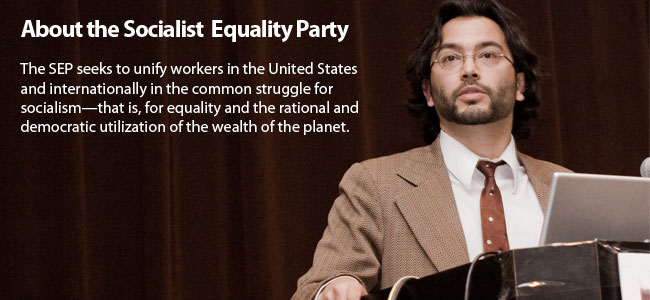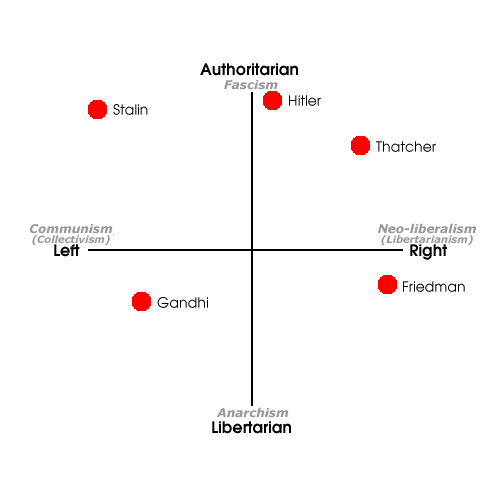When I’m really excited about a book or movie, I make a point of ignoring the reviews, the jacket copy, the trailers, etc. — I prefer to experience the full-length artwork cold. Then afterward I go back and check out the peripheral stuff.
So as some sort of ‘cautious supporter at a distance’ (or whatever) of Wikileaks — and especially of journos and fiction-writers bravely discussing radical transparency, technology, civil liberties — I got excited about what at first appeared, on the Wikileaks Central website here, to be a vague “Global WikiLeaks support rally.” Anyone apparently can claim one of these things, not unlike this or that tea party or this or that libertation front meeting. I put the date, time, and place (16 Feb, 7pm, the University of Houston Main Campus University Center Room 242) on my calendar and waited a good month or so for the day to arrive. I didn’t even research the event, really, let alone its periphery.
Though it was hard to miss this headline on the event(s) webpage at the World Socialist Web Site:
Imperialist diplomacy exposed: Behind the witch-hunt of WikiLeaks.
Really? Some dudes in Houston (and elsewhere!) have discerned the one and only witch-hunt and they’re going to expose it? Ah, but being charitable as I am, and being forewarned as I am about the loose nature of de-centralized rallies/discussions, I decided just to show up, see who’d be there, what’d happen there, benefit of the doubt and all.
A day or two before driving down to Houston, I double-checked the event’s meager webpage at the World Socialist Web Site (not Wikileaks Central) and noticed a name had been slotted in as a “Speaker”: Joe Kishore. (I think I have the timeline of these webpage changes accurate from memory, but if you find any cache or archive discrepancies, please tell in the comments.)

I ripped this image of Joe Kishore off the World Socialist Web Site since they don’t believe in property
I found his Twitter username and included it in a public tweet spanning Wikileaks-related hashtags in search of other people who might be attending. Kishore responded:
Not long after this exchange, the World Socialist Web Site added an additional sentence describing the Houston event: “The topic of this meeting has been changed to The Revolution in Egypt.” Maybe I’m imagining things, but it is relevant to point out that anyone can find out with two clicks on Twitter that my wife works as a television producer, and this event started as a political rally seeking attention. As for the Wikileaks Central page, they continued (and still continue) to describe the Houston meeting as a “support rally” and a “discuss[ion]”.
The day of the event, I used one of my school’s faculty restrooms to change out of my Clark Kent button-down & slacks and into a comfortable pair of blue jeans, my trusty O9 F9 T-shirt, and a hoodie-like thing with a “BLAME IT ON THE MEDIA” button in place of a flag pin. (Blame everything on the mediated nature of higher-order human consciousness!) And I got into my little hatchback and off through the Republic of Texas I went.
At about 8:00pm — missing all of the event except the last few Q&As! — I entered the room with my camera around my neck and my briefcase and, as quietly as possible so as not to distract anyone, made my way to the back of the room and took a chair. I decided photography would be rude, since I was such a late arrival, so unfortunately, no pictures here. But from memory, the demographics of the audience: about 15 students of the typical college age, late teens to early to mid-twenties, mostly non-white, males and females equally visible. I don’t think there were any professors in the room, as there sometimes are at talks. There were, however, two middle-aged white guys accompanying the National Secretary, Houston locals I think. Kishore told me later he was thirty.
I really only heard two or three audience questions. With one, a young woman asked about similar events elsewhere in the Middle East, and I was thinking, that’s what Twitter’s for, not really paying attention, as I was jacking-in to Twitter myself, tethering with my iPhone. Also I seem to remember a young man sitting across the aisle from me rising, shaking his head as if thinking this National Socialist Secretary Dude is kind of legit but also kind of wack, and then hastening out of the room, despite Kishore’s call for him to buy a pamphlet or sign up for an email list or something. But again, I don’t remember this all too clearly. I’d just driven about 5 hours and sat down and jacked-in, surrounded by an in-progress discussion.
Kishore asked if there were any more questions, and I asked what his Socialist Equality Party’s take was on the Pirate Party that has had some success in Sweden and is (sorta) beginning to appear in the USA, as well as for his party’s take on reform-minded alliances between progressive groups and libertarian groups, which is drawing the attention of some Wikileaks supporters &tc.?
Well, Kishore replied, incremental reform is window-dressing, coalition-building is white-washing, because we the people need revolution, one undergirded by a no-compromise socialist cultural movement; pamphlets on sale in the back would explain further.
Meeting adjourned, he said.

“The American Student Loan Racket“; at least this image is aligned left
I didn’t quite believe my ears. Revolution? Huh? Seriously, you think you are going to sell that in the ballot box to Americans with food in their stomachs and roofs over their heads, today, right now? That’s your political platform? If you’re really working in politics, you’re not a revolutionary, you’re a reformer. No wonder the Socialist Equality Party achieves only 0.000000000001% of the vote (if that) with their contradictions.
I stayed for a while as the ~15 students trickled out, talking with National Secretary Kishore and his two friends, er, comrades. (So at this point everyone in the room is male and thoroughly bourgeois.) I gave the Socialist Equality Party $2 in cash to get a pamphlet (pictured left) that attacks the student loan industry, as a dark-humor gag gift for Wifely Kate; hopefully that $2 doesn’t count as material support for anything illegal. (It did strike me as goofy that the pamphlets weren’t free, but I decided not to ask.)
I questioned the three guys on their Trostsky-ite philosophy, and they “refudiated” my points each in their own way. Kishore spoke in quotes, often picking up pamphlets to find them, and sometimes ducked aside enigmatically for cell phone communiques. One of the other two just stared at me silently with those all-seeing/sightless eyes I know too well from having interacted with Scientologists (a tiny bit) and with Ayn Rand-ers (way too much). The third seemed very, very nervous, fidgeting, trying to figure out which world he belonged to. Eventually — I forget on whose suggestion — we decided to go to a nearby sports bar to continue talking. Again, I try to be charitable and support everyone’s right to be weird, you know? And, having mentioned this event to so many others beforehand, I felt a writer’s duty to plumb its depths.
Leaving the main of the campus, I started asking the 5 W’s and 1 H: Who What When Where Why and How. That was when the bad vibes I was getting began crescendo-ing; like I said, I can be overly generous and charitable when interpreting others’ behavior. I asked how they got ahold of the room. The very, very nervous man said this was their second time at the University of Houston, and so far, the school hadn’t been ruffled by their Socialist Equality Party name — he seemed to imply, darkly, that such problems were not uncommon in the capitalist United States. (I saw Steve Best, a self-appointed spokesperson for the Animal Liberation Front, give a talk at Texas Christian University; I don’t think the Socialist Equality Party has much to worry about on this room issue besides paying any pertinent bills.) These three guys only mentioned their first names when they introduced themselves. You know, creepy stuff like that. But I pushed forward in the conversation, circling in on the logical flaws of, you know, burning the entire world to the ground and starting from zero.
Like, “You support democratic decision-making, but since as you say that requires an educated populace, how are you going to teach a bunch of people with infrastructure in collapse?” Kishore: “You can educate people in a hurry.” And I should have said, “Yeah, when you have all the bananas and education means agreeing with you.” This was the place where we parted ways.
When I returned home, I finally got to googling some of the event’s periphery:
Joe Kishore of the Socialist Equality Party apparently shares the chairperson title with David North, and plenty of stops on the Intertubes, such as this LJ post, this Usenet thread, and this blog post allege David North = David W. Green, rich CEO of a capitalist publishing operation, Grand River Printing & Imaging. They assert David W. Green is making money of these pamphlets and expected donations from members, using Joe Kishore as his (un?)witting mouthpiece. Maybe those posts are wrong. Like the X–Files TV show says, “The Truth Is Out There” — but I’m too disgusted to look for it.
Three things remain. One, when I was deeply involved in the most hardcore of the Ayn Rand groups as a teenager, somebody else inadvertently sparked my getting out of it by means of pranking one of our online meetings with humor, and then, when I messaged him directly to say “Help,” he talked with me — selflessly — for hours, assuring me I’d still find friends once I got out of that twisted group, to which he too used to belong. So I feel an obligation to post this in case any of those three guys (or their associates) are looking for some words to help them find their way out. (Though I do not wish to communicate with the three I met personally.)
And second, it’s all so easy to assume your in-groups are normal, and your out-groups are somehow wrongly weird. You don’t need Foucault or Wittgenstein to see the problem here, you just need courage. Pick your most cherished affiliation — religious, political, whatever. Question yourself about it, in writing maybe. Eventually you’ll learn that human beings fashion narratives to survive; they need story-lines to manage their surroundings. Narratives edit out other possibilities (“this is the story, not that”); they provide absolutes for a while, even for centuries, and you must use them to function. But everything in reality is in flux, so narratives are always deficient. Flexibility with narratives is a life skill essential to writers, and to anyone who doesn’t want to remain locked on their own island, surrounded by a wall, screaming at the world and its groups to get off their lawn as the number of people who will stay beside them declines and declines.
And third: this, I think, is why so few Americans actually participate in local politics, where their actions can make an enormous difference, and escape to national or global politics, where it’s easy to point fingers at situations you *actually* know very little about. It’s so easy to refuse the challenge of interacting with compassion and empathy to understand one another in person, learn from one another’s partisan divides, … and to instead riff on stereotypes about how so many of “those people” over on the other side of the world are, you know, weird. That’s the easy way out, the easy way to become anchored to a nice safe island that has nothing on it.
So on Feb 16 2011, did the Socialist Equality Party take over a de-centralized pro-Wikileaks rally in order to gain followers and money? Yes, just like we all go to de-centralized places in order to profit in various ways. The difference is that, from what I can tell, people in the Socialist Equality Party are interested in cold hard private-property cash, and they’re lying about it. Even down to David North’s very name. Then again, I wasn’t there for the whole thing. None of us ever are.







 Twitter:
Twitter:
Join the conversation